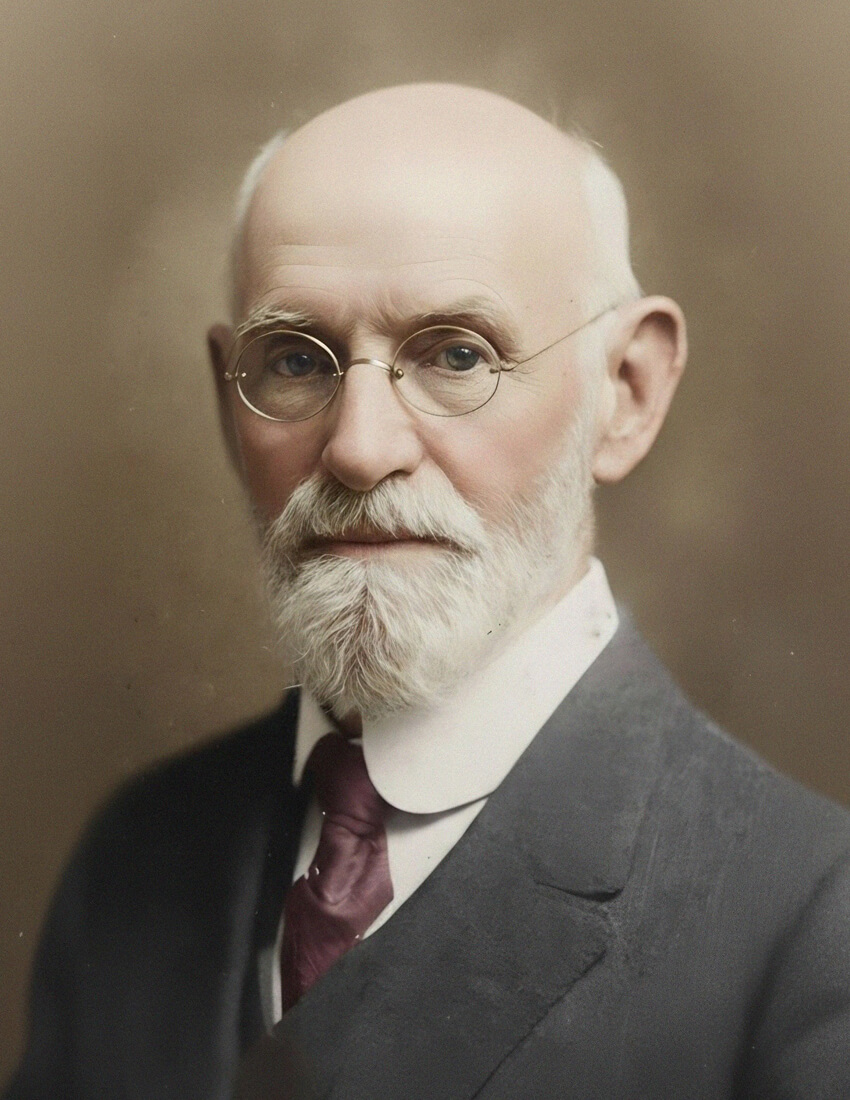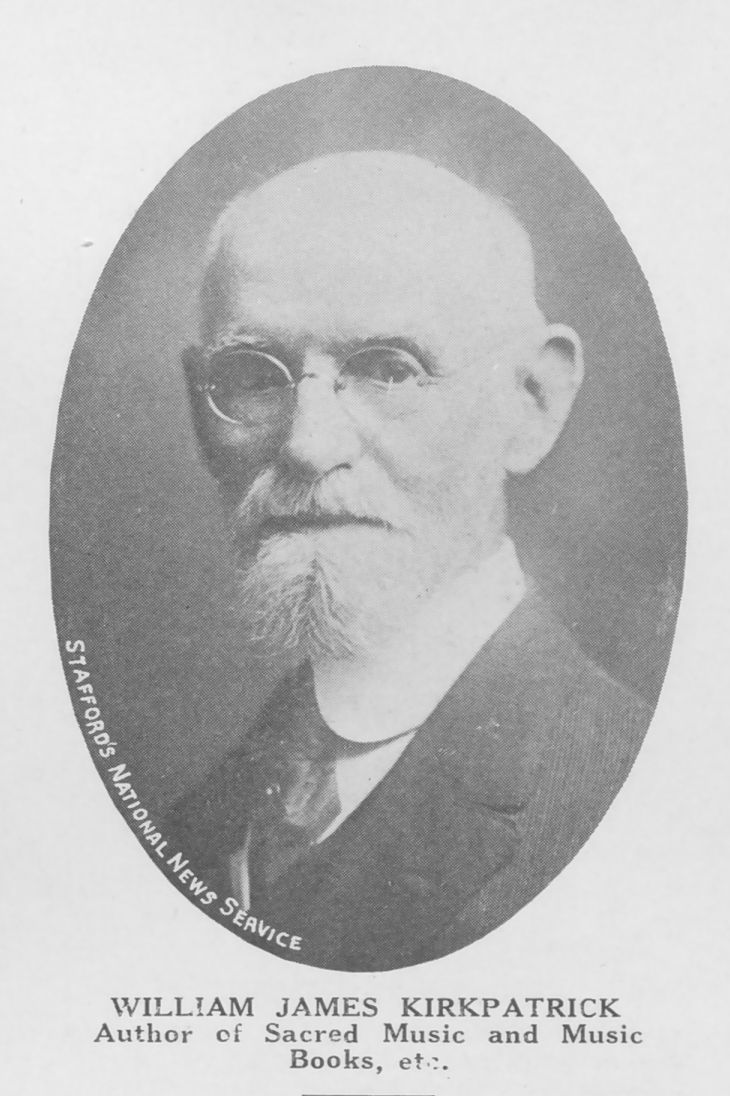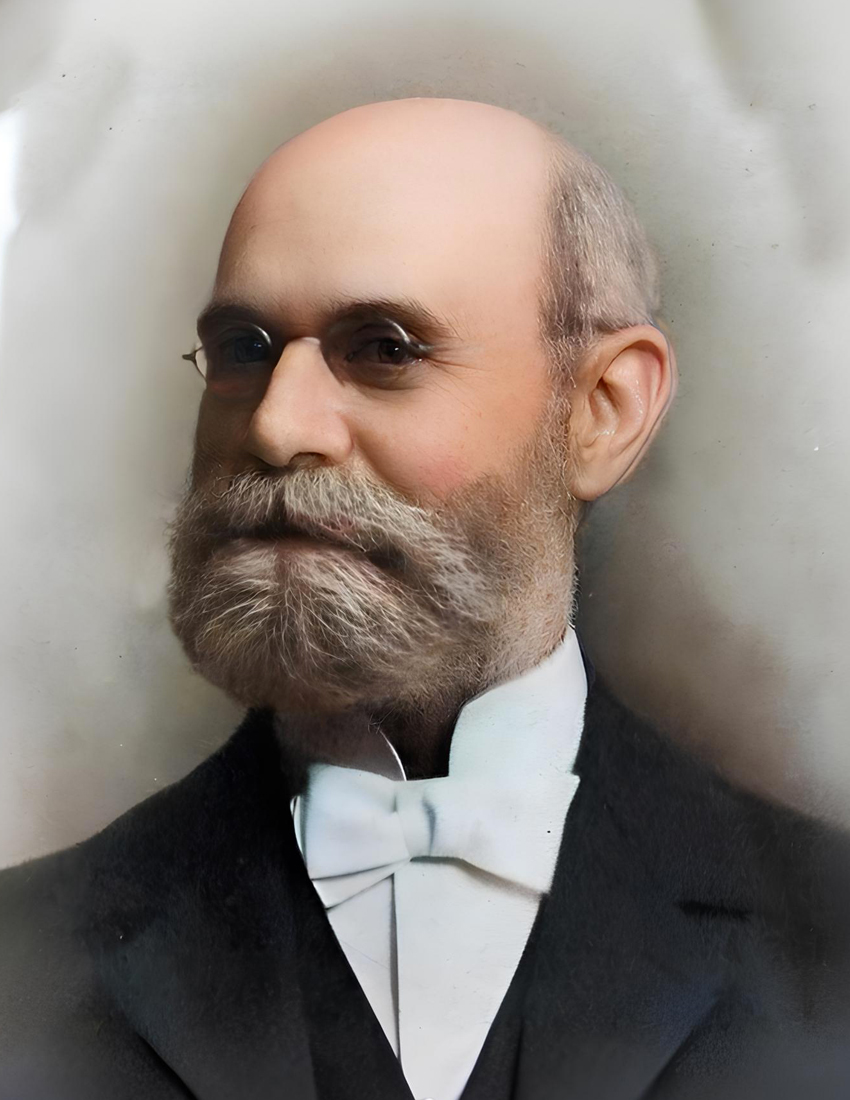Born: February 27, 1838, Duncannon, PA.
Died: September 20, 1921, Germantown, PA.
Buried: West Laurel Hill Cemetery, Bala Cynwyd, PA.
William James Kirkpatrick

Hymns by William Kirkpatrick
Kirkpatrick Portraits
A note from Hymndex editor Don Chapman:
I love bringing old photos of hymnwriters to life with AI image editors! And as these technologies become better and better I’ll enhance these photos even more. The main image above for Kirkpatrick is my second version, rebuilt from this:

Here’s my first restoration of a Kirkpatrick portrait. This one seems to be more of a painting, less of a photo:

The Musical Journey of a Gospel Hymn Composer
Born on February 27, 1838, in County Tyrone, Ireland, William James Kirkpatrick would go on to become one of the most prolific and influential Gospel composers of his generation, penning the tunes to over 1,000 beloved hymns that continue to inspire and uplift believers around the world.
From Ireland to America: The Early Years
William Kirkpatrick’s musical journey began in the home of his father, Thomas Kirkpatrick, a schoolteacher and musician who recognized and nurtured his son’s prodigious talent from a young age. Kirkpatrick’s early musical training came from his father, and he later studied with several recognized music teachers to hone his skills.
As a young man in Philadelphia, Kirkpatrick immersed himself in the study of various instruments, including the cello, fife, flute, organ, and violin. He also received formal training in vocal music under the tutelage of Professor T. Bishop. Kirkpatrick’s involvement with the Harmonia and Haydn Sacred Music Societies exposed him to the works of great composers and set the stage for his future career in gospel music.
Partnership with John R. Sweney
In 1858, Kirkpatrick began his collaboration with A.S. Jenks, who helped him publish his first collection of hymns, “Devotional Melodies.” This experience marked the beginning of a fruitful partnership that would span decades and produce numerous influential hymnals.
But it was Kirkpatrick’s meeting with John R. Sweney that would truly shape the course of his musical legacy. Before dedicating his life entirely to music, Kirkpatrick served as a fife major during the Civil War and later worked as a furniture dealer in Philadelphia from 1862 to 1878, utilizing his skills as a carpenter. Together, Sweney and Kirkpatrick published an astonishing 49 major books between 1880 and 1897, cementing their status as two of the most important figures in gospel music publishing. Their works, which included collections for Sunday schools, choirs, and congregational singing, sold millions of copies and helped to define the sound of American sacred music in the late 19th century.
A Life Devoted to Music Ministry
Throughout his career, Kirkpatrick held positions as a church organist and music director, using his gifts to lead congregations in worship and train choirs and musicians. In 1878, Kirkpatrick left the furniture business to focus solely on his musical career, serving as music director at Grace Methodist Church in Philadelphia. He was known for his ability to bring out the best in singers and his commitment to excellence in all aspects of his work.
In addition to his duties in the church, Kirkpatrick was a sought-after leader for conventions, camp meetings, and singing schools. He had a passion for teaching others and helping them to develop their musical abilities for the glory of God. His gentle spirit and humble demeanor endeared him to all who knew him, and his influence extended far beyond the walls of any single church or institution.
Friendship with Fanny Crosby
One of the most significant relationships in William Kirkpatrick’s life was his friendship with the renowned hymn writer Fanny Crosby. The two collaborated on several songs, including the beloved “He Hideth My Soul,” and Crosby affectionately referred to Kirkpatrick as “Kirkie.” Their partnership was a testament to the power of shared faith and musical passion, and it produced some of the most enduring hymns of the gospel tradition.
A Legacy in Song
Today, William Kirkpatrick is remembered as the composer of some of the most cherished tunes in the gospel music canon. Songs like “‘Tis So Sweet to Trust in Jesus,” “Lead Me to Calvary,” and “Jesus Saves” continue to be sung in churches around the world, their melodies and harmonies as fresh and powerful as the day they were written.
Perhaps the most poignant testament to Kirkpatrick’s devotion to his craft comes from the story of his final hours. On the night of September 20, 1921, Kirkpatrick awoke with a melody running through his mind. He told his wife that he needed to write it down before he lost it, and went to his study to capture the tune. Sometime later, his wife found him slumped over his desk, his earthly work finished but his musical legacy eternally secure. Though the specific tune he was working on that night has been lost to history, the impact of his life and music will endure for generations to come.
A Timeless Testimony
The life and work of William J. Kirkpatrick serve as an inspiration to all who seek to use their talents for the glory of God. Through his unwavering commitment to his craft, his humble spirit, and his dedication to the gospel, Kirkpatrick left an indelible mark on the world of sacred music. As we sing the songs he composed and reflect on the story of his life, may we be challenged to pursue our own callings with the same passion, excellence, and faithfulness that characterized this remarkable man of God. For in the end, it is not the accolades of this world that matter most, but the eternal impact of a life surrendered to Christ and poured out in service to His kingdom. This is the true legacy of William J. Kirkpatrick, and it is one that will continue to inspire and uplift hearts for generations to come.

